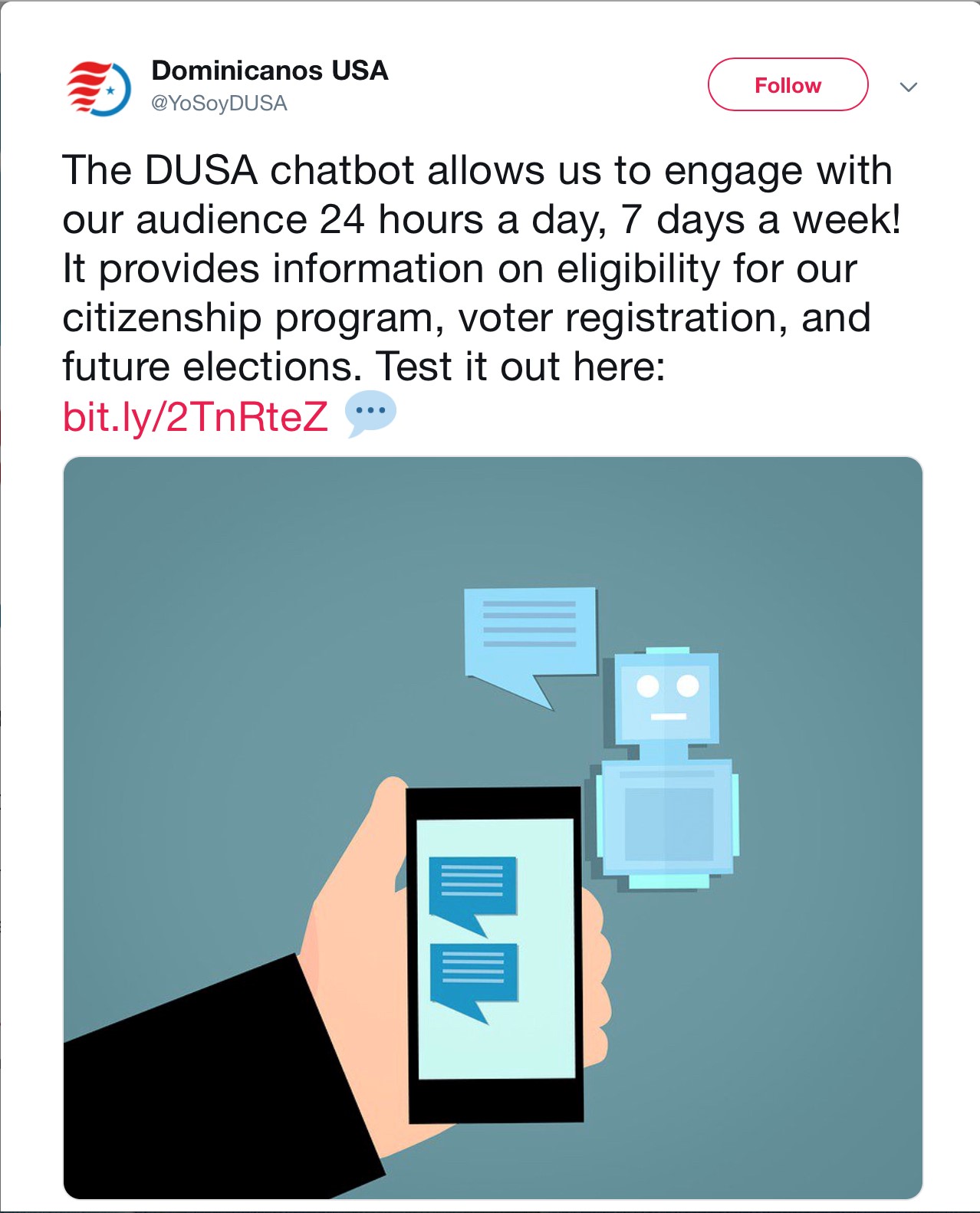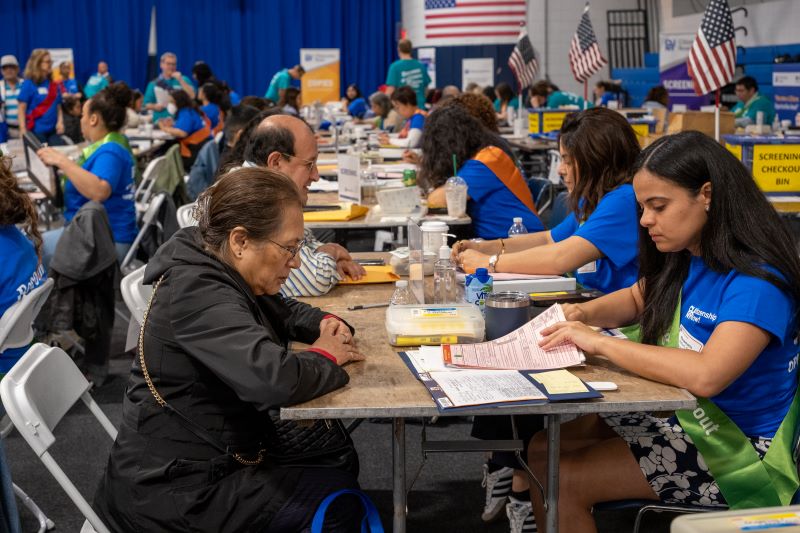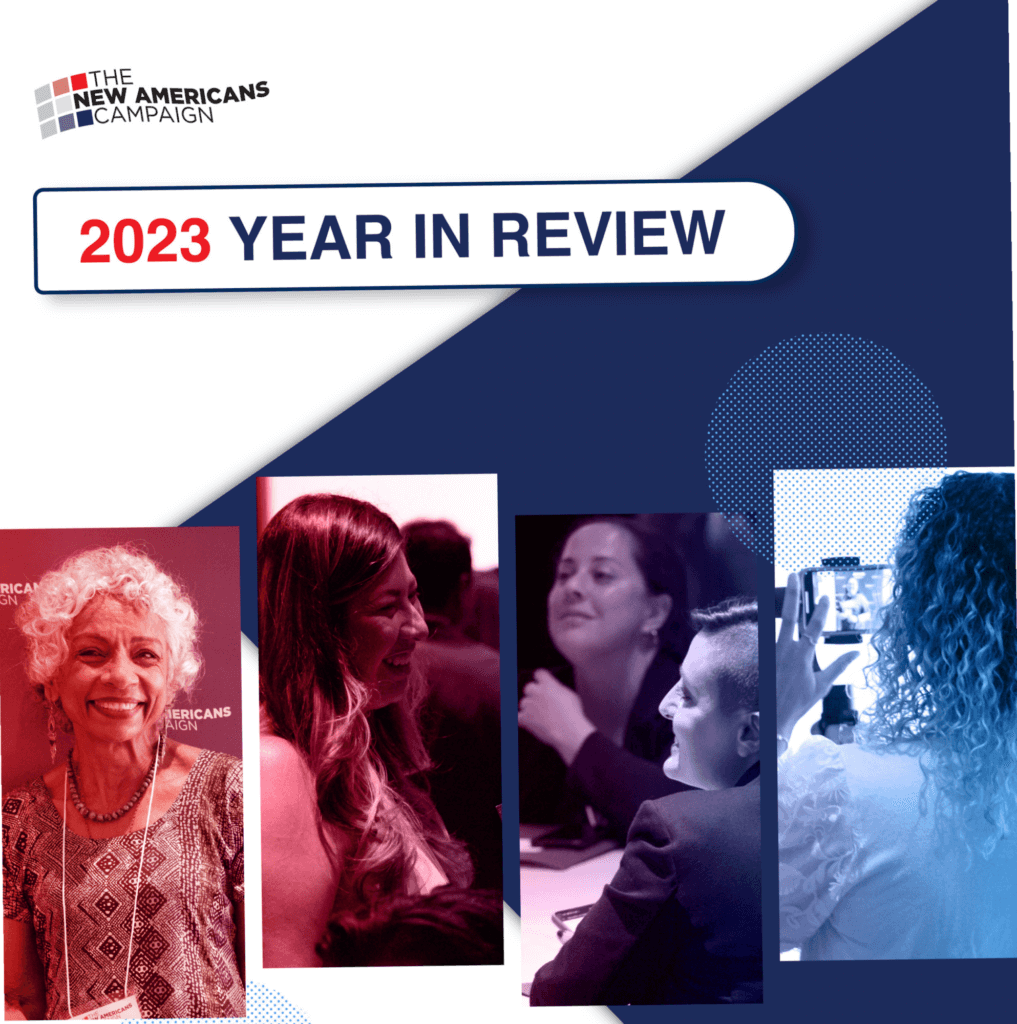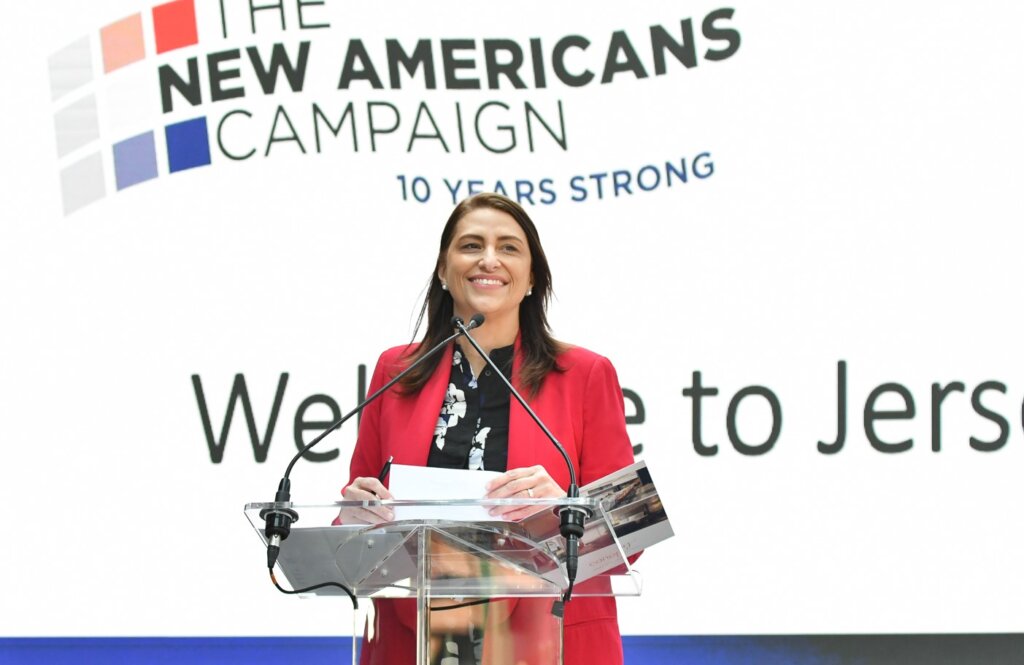Digital Communication & Civic Engagement: What Works?

Text. WeChat. Emojis. Chatbots. Facebook. NationBuilder. Do
you use any of these (or all) to communicate with your immigrant community
about the resources you provide on their path to citizenship? Participants in
the Civic Engagement plenary of 2019 New Americans Campaign conference have
been experimenting with these digital tools and were on hand to share what
they’ve learned. The overarching question was “What works?” How can the
technology of the digital world help immigrants pursue citizenship and civic
engagement?
Mariana Sanchez, of Bonding Against Adversity in Houston, says texting opens a convenient line of communication with clients that works better than email or the telephone for the diverse community that they serve. Not only is texting more personal, but it also builds a rapport as it moves large volumes of information. A friendly text can notify people about their events, check in about their citizenship application status, and ask whether they have registered to vote. The downside is that the more you text, the more staff you need to manage the outgoing and incoming response.
Manuel Gutierrez, of Promise Arizona (PAZ), also uses texting to reach his community. PAZ uses a platform called EZtexting.com that facilitates mass texting and is often used for marketing campaigns by the business world. Since EZtexting offers a free option for up to 100 texts a month, PAZ sends out texts in batches of 20 on a monthly basis. The app unfortunately lacks the accents and symbols required for writing in Spanish, which can be confusing, but overall it is a useful tool for civic engagement.
Gutierrez has also developed a civic engagement texting program with the five New Americans Campaign partners in Phoenix. The partners decided to use the NAC brand as a way to build trust and bring people together; regardless of which partner helped with the citizenship application, when PAZ sends out a civic engagement text, the recipient knows it is from the “NAC family.” For civic engagement, Gutierrez finds that Becomeavoter.org, developed by UnidosUS, is useful for new citizens to learn how to register to vote, as well as an easy way to share the information and encourage family and friends to register to vote as well.*
Duy Nguyen, of the Asian Community Development Council (ACDC) in Nevada, said that his organization is building trust in the Asian and Pacific Islander community by hosting cultural or educational programs and listening to the community. ACDC learned quickly that WeChat is the way to reach much of their constituency. WeChat, which first became popular in China, is now one of the world’s largest social media and messaging apps.
Nguyen and his colleagues message the largest local WeChat groups about citizenship services to the community on a biweekly basis. Using emojis, says Nguyen, also helps make the outreach feel more personal. Overall, he says it is an easy, convenient, and intuitive way to stay in touch with clients. The downside is that it’s labor intensive. WeChat messaging is also a good way to get applicants excited about registering to vote when they become citizens, and to inform new citizens about how to complete the process. ACDC staff, however, found that while social media enhances their outreach, it cannot completely replace face-to-face interaction. Last year they collected 14,114 voter registration forms, mostly in person at ethnic supermarkets, cultural events and festivals. The investment of time is worthwhile, since naturalized citizens are enthusiastic voters. A Pew Research Center report in 2017 found that among Hispanics and Asians, the voter turnout for naturalized citizens is higher than for U.S. born.
While many of these digital tools began in the marketing world, a platform called NationBuilder was originally designed to help grow and manage political campaigns. Andrés Rivera, formerly of Orange County Communities Organized for Responsible Development (OCCORD), says that when they transferred contact information for 5000 lawful permanent residents they had helped apply for naturalization from their database into NationBuilder, they were able to analyze whether any of them had become a citizen and registered to vote. For anyone who had not, they could send messages to the group, like, “Have you finished the naturalization application yet?” Or “Are you registered to vote?” Communicating in Spanish gives them a 72% response rate. While it is very powerful tool, says Rivera, the data integration takes time.
Finally, the digital marketing strategy for Dominicanos USA, based in New York, is to use chatbots through Facebook messenger, says Eliana Santos. Chatbots are those helpful conversation bubbles that pop up on your screen to answer questions from your clients. Technically, they are automated systems for customer support that enable a conversation. Dominicanos USA uses Chatbots to engage community members on naturalization and civic engagement. So how do you harness the power of these mysterious bots? Santos recommended a free platform called Mobilemonkey.com that gives you the templates and widgets and landing pages to get you going.
Chatbots, and widgets, and apps! Oh
my! The “yellow brick road” to civic engagement and communication is digital
these days. “Our partners are leveraging technology to help LPRs and
naturalized citizens deepen their feelings of belonging, engage in the
democratic process, and become entrenched members of our communities,” said
Rebeca Rangel, New Americans Campaign Program Manager, “I am proud of our
partners’ groundbreaking work to build an effective naturalization-to-voter
pipeline.”
For more information about texting tools to support citizenship and civic engagement, please read the New Americans Campaign’s toolkit on Integrating Text Messaging into Naturalization Services and Beyond.
*The New Americans
Campaign’s civic engagement program provides information and education about
voter registration but does not fund the act of registering voters.



